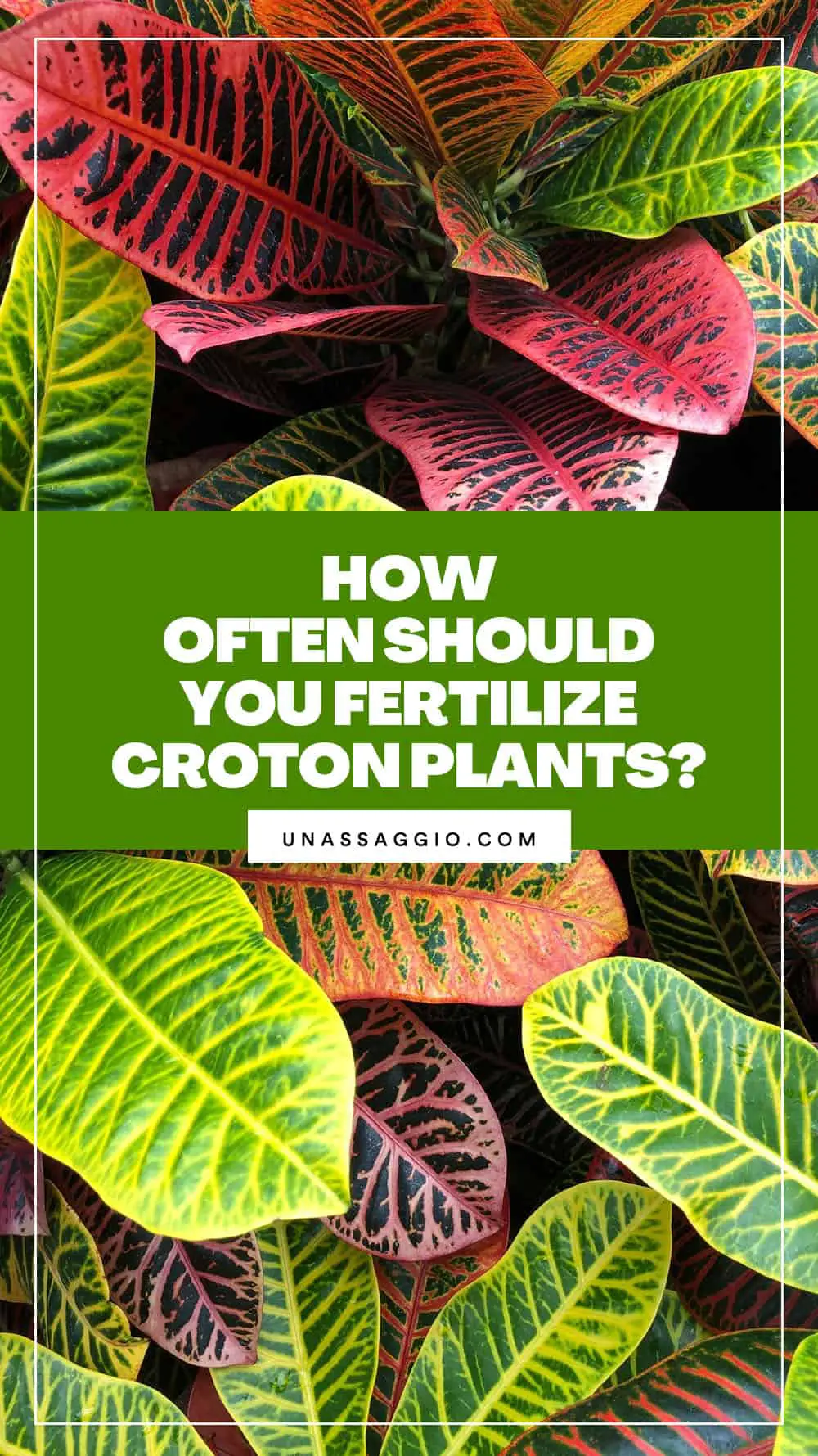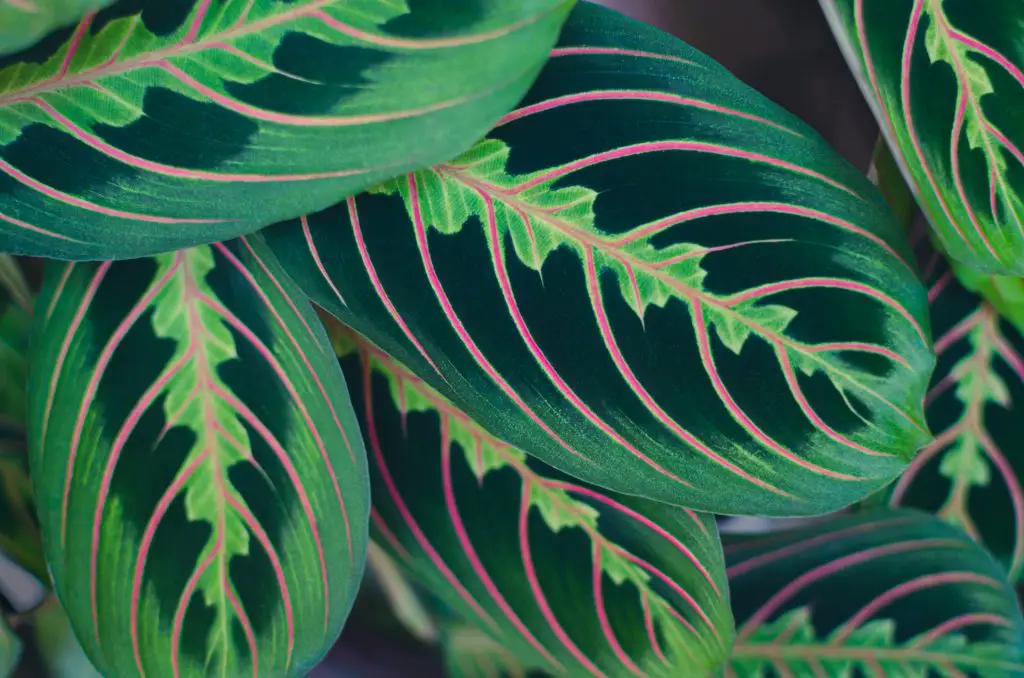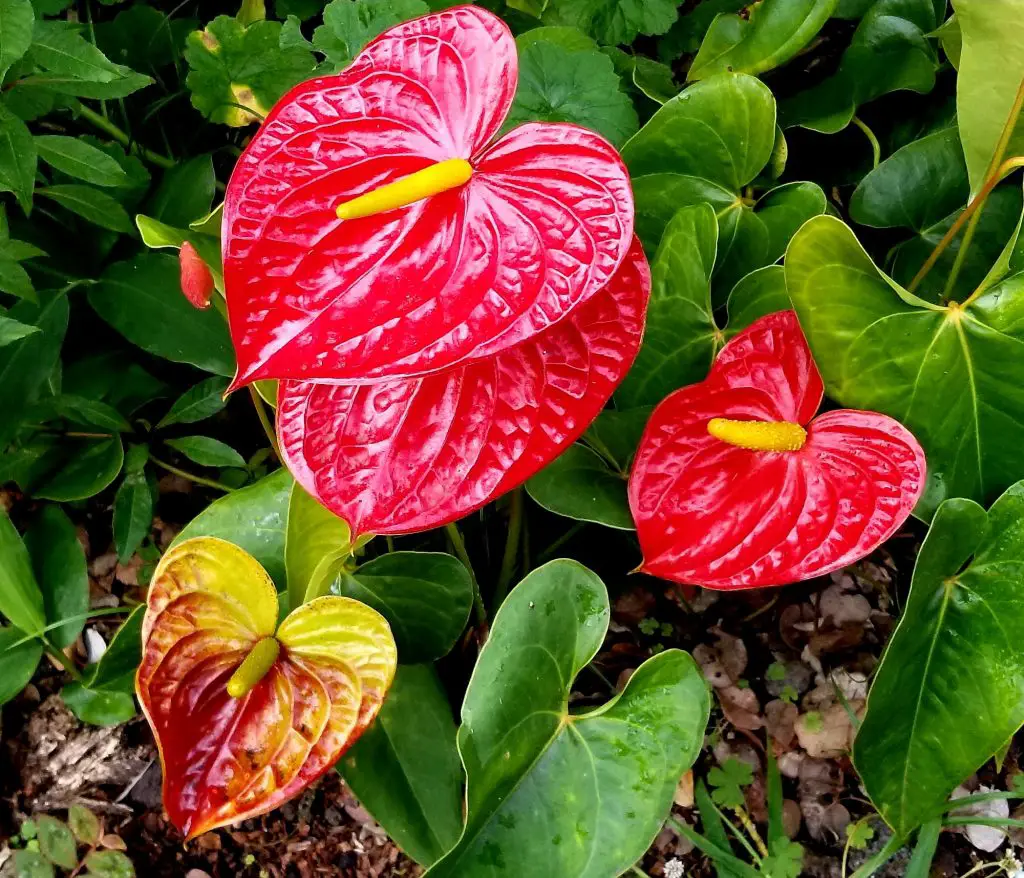Fertilizers are materials added to soils to provide additional nutrients required for the healthy growth and development required of any plant.
In a bid to enhance the growth of croton plants, its growers employ the use of fertilizers. Apart from supplying nutrients necessary for the growth of the plant, it also aids the production of a bright foliage appearance.
Issues pertinent to fertilizing streams from growers lacking knowledge about when and when not to fertilize, how often to fertilize, the proper amount, the adverse effects of under or over-fertilizing, and the appropriate fertilizer for your croton plants.
As much as fertilizing croton plants makes them healthy, over-fertilizing may do more harm than good for the plant and this has been a cause of concern for croton plant growers. Fertilizers when used appropriately produce the healthiest and most colorful croton plants.
This article encompasses all you need to know about fertilizing your croton plant.
Table of Contents
Why should you fertilize your croton plants
Lets start this guide with why you should fertilize your croton plants.

1. Fertilizer application enhances growth in Houseplants
Fertilizers are required for the healthy growth and development of croton plants. Fertilizers contain a balance of nutrients and minerals that are essential for croton plants to thrive. The fertilizers make up for lost nutrients that cannot be found in the soil and thus ensures the plant grows healthy.
Without fertilizers, the soil may not be able to adequately replenish the nutrients needed for the proper growth of the croton plant and they may begin to decline with time.
Also, they improve soil structure, texture, aeration, and aids in boosting the soil’s ability to retain water and stimulating strong root development.
2. Brilliant foliage appearance
If your crotons are not producing vibrant colorful leaves as they ought to, it might be an indication that the plants are lacking adequate nutrients. Adding balanced fertilizers to the soil helps enhance the colors of the croton plant
3. Recovery from heavy infestation
If plants have been severely affected by infestations, the roots may have been damaged and may need additional nutrients to help them thrive again. Fertilizers are usually the best option to resort to as they help replenish lost nutrients and provide the adequate amount needed for recovery and healthy growth

How often should you fertilize your croton plants?
Outdoor-grown croton plants should be fertilized at most three times in a year starting from spring, summer, and then fall. Fertilizing them once during these seasons is appropriate for the plant. The best fertilizers for outdoor crotons are slow-release granular fertilizers.
Granular fertilizers cannot be used frequently because it releases nutrients at a slower rate but it lasts for a long period before another supply is required. For indoor croton plants, you could fertilize using water-soluble fertilizers once a week with a gauged amount.
Water-soluble fertilizers produce the best results on crotons when are frequently applied.
How should you fertilize croton plants?
Fertilizing croton plants is quite easy if these steps are followed:
- Apply selected fertilizer to the soil at the base of the plant and evenly spread it
- Water the soil with an adequate amount to dissolve the water granules into the soil; this starts releasing the fertilizer into the soil
- If water-soluble fertilizer is being used, you could just spray it into the soil.
When should you stop fertilizing your crotons?
You should stop fertilizing when you notice the bright colors have begun to fade. Although there are various factors responsible for croton plants losing their bright colors, over-fertilizing is one of them.
Some other factors responsible for croton plants are inadequate lighting, watering, weather conditions, and infestations. If you detect these are not responsible, then over-fertilizing may be the cause and a soil transplant may be needed immediately to preserve the life of the plant.
After soil transplanting, avoid fertilizing for a while to allow the roots of the plant to recover from the damage. In addition, croton growers are advised to stop fertilizing during the fall and winter season; when plants are fertilized they become tender and may not be able to withstand the weather conditions of these seasons.
What fertilizer is best for crotons?
The appropriate fertilizers for crotons are those high in nitrogen and potassium. Research has it that the most favorable fertilizer for a croton plant is a low nitrogen, time-released, and granular fertilizer. These kinds of fertilizers can be ordered from large-scale farms or ranches and online stores.
- FOR ALL INDOOR & OUTDOOR PLANTS: Snake Plant, Pothos ZZ Plant, Aloe Vera, Philodendron Green, Peace Lily, Rubber Tree, Chinese Evergreen, Monstera Deliciosa, Dracaena, Spider Plant, Fiddle Leaf Fig, Mini Cactus, Calathea, Laceleaf, Croton, Pilea Peperomioides, Jade Plant, African Violet.
- PROMOTES HEALTHY PLANT GROWTH: Purived has an N-P-K ratio of N4-P5-K5. Nitrogen (N) promotes healthy green leaf growth by stimulating the production of chlorophyll, which plants use to convert sunlight to food during the photosynthesis process. Phosphorus (P) supports the development of plant roots (that anchor and strengthen plants), stems, blossoms, and fruits. Potassium (K) helps plants stay healthy and vigorous, and aids the overall functions of the plant.
- FOR ALL INDOOR & OUTDOOR PLANTS: Snake Plant, Pothos ZZ Plant, Aloe Vera, Philodendron Green, Peace Lily, Rubber Tree, Chinese Evergreen, Birds Nest Fern, Monstera Deliciosa, Dracaena, Spider Plant, Fiddle Leaf Fig, Mini Cactus, Calathea, Laceleaf, Croton, Pilea Peperomioides, Jade Plant, African Violet, Guiana Chestnut, Yucca, Peperomia, Burros-Tail, Parlor Palm, Begonia, Weeping Fig, Calla Lillies, Prayer Plant, Philodendron, Plant Dieffenbachia, Croton Plant, Christmas Cactus, and many more.
- PROMOTES HEALTHY PLANT GROWTH: Purived has an N-P-K ratio of N4-P5-K5. Nitrogen (N) promotes healthy green leaf growth by stimulating the production of chlorophyll, which plants use to convert sunlight to food during the photosynthesis process. Phosphorus (P) supports the development of plant roots (that anchor and strengthen plants), stems, blossoms, and fruits. Potassium (K) helps plants stay healthy and vigorous, and aids overall functions of the pla
Prices pulled from the Amazon Product Advertising API on:
Product prices and availability are accurate as of the date/time indicated and are subject to change. Any price and availability information displayed on [relevant Amazon Site(s), as applicable] at the time of purchase will apply to the purchase of this product.
In conclusion
Crotons require a balanced fertilizer to reach their full potential. However, crotons grown in the ground would require smaller amounts of fertilizers than those grown in pots or containers.
Making use of oak leaves can suffice as mulch for your croton plants if fertilizers are not available. Remember over-fertilization does more harm than good to the growth and development of your croton plant.
Read next:








